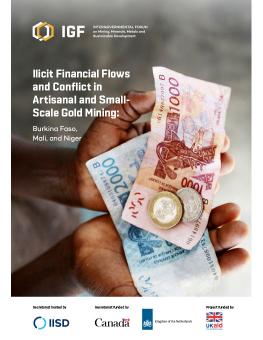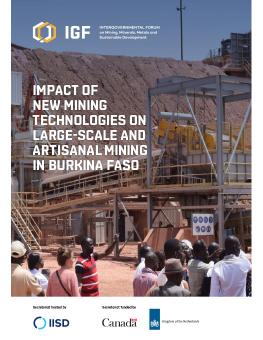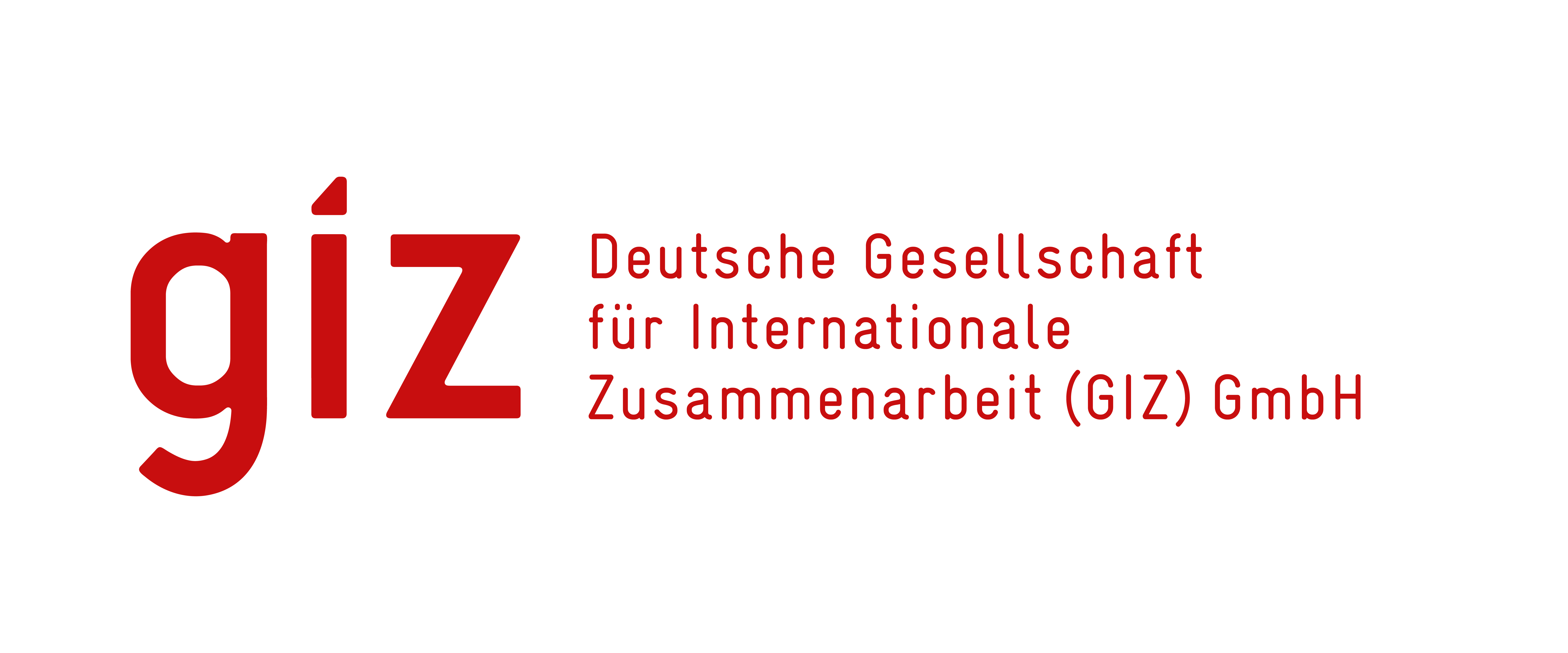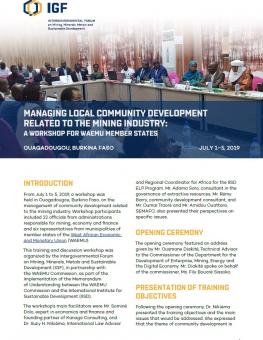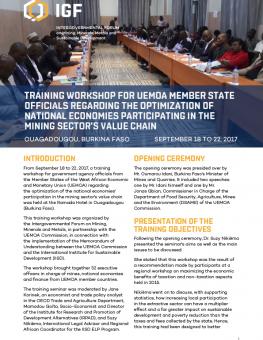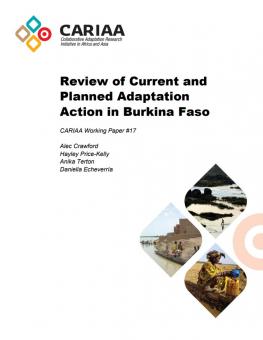The agriculture sector is vital to Burkina Faso’s economy.
(Francais suivre)
Reinforcing the sector’s importance, the President of Burkina Faso enacted in June 2018 a new agriculture investment code aiming at promoting productive investments in livestock, fisheries, forestry and fauna management (The Agricultural Investment Code). It establishes an enabling environment and creates incentives to boost investment in the targeted sectors. The adoption of this law completes a long process in which IISD has been engaged with the Ministry of Agriculture and Food Security, together with other partners, since 2012.
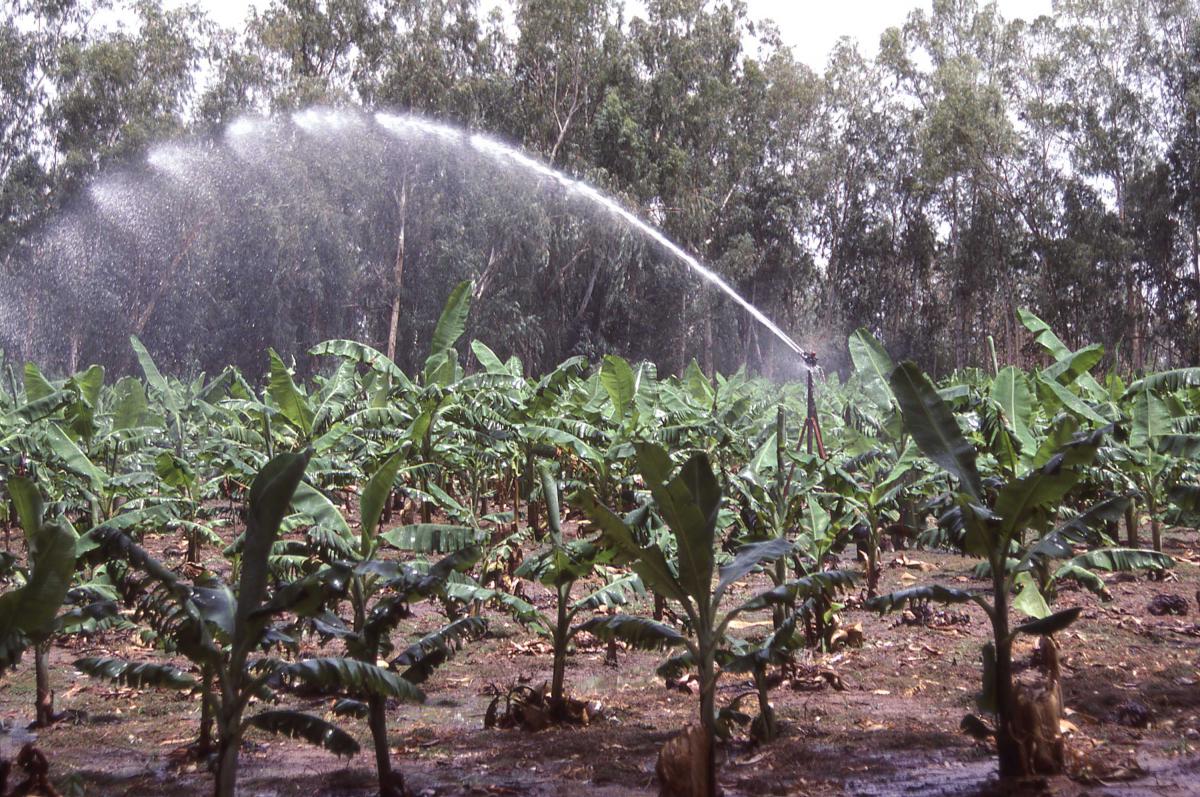
Eighty-six per cent of the country’s population are active in agriculture, which provide about 45 per cent of households’ incomes, according to the document on agriculture related-sectors investment opportunities.
Burkina Faso’s rural sector contributed nearly 33 per cent of the country’s gross domestic product (GDP) between 2005 and 2015, but this contribution decreased to 27.8 per cent in 2017, in part prompting the government’s ambitious plan to accelerate agricultural transformation. The newly adopted agricultural investment code aims to develop resilient and productive rural sectors, while reinforcing a market-oriented approach based on the principles of sustainable development.
How does the new code reflect key sustainable investment issues? And what aspects could be improved?
The strengths: the code supports and reinforces the primacy of existing environmental, labour, land and tax laws, and prioritizes responsible investment.
The code makes specific and repeated references to the applicability of Burkina Faso’s existing laws and regulations, ensuring agricultural investors will be subject to all the country’s laws, including those on the environment, labour, tax and land. This avoids the risk that the code could be seen or used as a vehicle to allow agricultural investors to bypass other areas of law.
Another positive aspect is the applicability of the code to growth poles, an important emerging tool being harnessed by a number of African governments, including Burkina Faso with Bagrépôle as a pilot project. Agricultural growth poles are specific zones for concentrated production, processing, services and distribution of agricultural products with a view to increase value addition. An earlier version of the code had incorporated provisions excluding its application to growth poles. This was removed from the final draft, meaning that investors operating in growth poles should, in principle, comply with the Agricultural Investment Code.
It should be noted that the code does not extend to industrial processing or marketing of agricultural products, which are key activities more likely to occur in agricultural growth poles. Therefore, while these poles are covered in principle by the code, in practice, a crucial segment of the activities occurring in these areas is excluded.
Some shortcomings: provisions on employment incentives and prioritizing local goods and services could be stronger.
The code could also have stronger incentives for investors to use local goods and services or to establish community development agreements. The code only encourages local employment generation by offering fiscal incentives such as customs duties and tax exemptions based on the projected investment and its impact on job creation and, to a lesser extent, in terms of export of an important part of their production. To maximize job creation and other economic opportunities for the local community, the code could word related provisions as prescriptions for investors, irrespective of the grant of tax incentives. For example, the text could include provisions requiring investors to reserve unqualified positions for nationals and prioritize them, at equal competence, for qualified jobs. Then, more targeted and ambitious objectives could be required from investors willing to benefit from tax incentives.
Despite some shortcomings that can be fixed through implementation, the code is an important step in the right direction to attract responsible investment. At the same time, it provides more clarity and coherence for investors while strengthening the existing legal and regulatory system governing issues such as land and labour rights, environmental protections, and tax obligations.
***
Le Burkina Faso adopte un nouveau code d’investissement agricole : comment contribue-t-il au développement durable?
Mohamed Coulibaly et H. Suzy Nikièma
Le secteur agricole est vital pour l’économie du Burkina Faso.
Renforçant l’importance du secteur, le Président du Burkina Faso a promulgué en juin 2018 un nouveau code des investissements agricoles visant à promouvoir des investissements productifs dans l’élevage, la pêche, la foresterie et la gestion de la faune (Code d’investissement agricole). Le code établit un environnement favorable et crée des incitations pour stimuler les investissements dans les secteurs ciblés. L'adoption de cette loi marque le couronnement d’un long processus dans lequel l'IISD a été engagé avec le ministère de l'Agriculture et de la Sécurité alimentaire, et d'autres partenaires, depuis 2012.

Selon le document sur les opportunités d’investissement dans les secteurs liés à l’agriculture, 86% de la population du pays travaille dans l’agriculture, qui fournit environ 45% du revenu des ménages.
Le secteur rural du Burkina Faso a contribué pour près de 33% au produit intérieur brut (PIB) du pays entre 2005 et 2015, mais cette contribution a baissé à 27,8% en 2017, ce qui a en partie motivé le plan ambitieux du gouvernement visant à accélérer la transformation agricole. Le code des investissements agricoles récemment adopté vise à développer des secteurs ruraux résilients et productifs, tout en renforçant une approche axée sur le marché fondée sur les principes du développement durable.
Comment le nouveau code reflète-t-il les principales questions liées à l'investissement durable ? Et quels aspects pourraient être améliorés ?
Les forces : le code soutient et renforce la primauté des lois existantes en matière d'environnement, de travail, de propriété foncière et fiscale, et priorise l'investissement responsable.
Le code mentionne de manière spécifique et répétée l’applicabilité des lois et réglementations existantes du Burkina Faso, garantissant que les investisseurs agricoles seront soumis à toutes les lois du pays, y compris celles relatives à l’environnement, au travail, aux impôts et à la terre. Cela évite le risque que le code soit vu ou utilisé comme un moyen permettant aux investisseurs de contourner d'autres domaines du droit.
Un autre aspect positif est l’applicabilité du code aux zones de croissance agricoles, un outil important de plus en plus utilisé par bon nombre de gouvernements africains, y compris le Burkina avec comme Bagrépôle comme projet pilote. Les pôles de croissance agricoles sont des zones spécifiques pour la concentration des activités de production, de transformation, de services et de distribution de produits agricoles dans le but d'accroître la valeur ajoutée. Une version antérieure du code comportait une disposition exemptant ces zones de son champ d’application La version finale du texte ne comporte pas cette disposition, de sorte que les investisseurs intervenant dans les pôles de croissances doivent se conformer au code d’investissement agricole.
On notera que le code ne s'étend pas aux activités de transformation industrielle ou de commercialisation des produits agricoles, qui sont des activités clés susceptibles de se produire dans les pôles de croissance agricole. De ce fait, même si ces pôles sont en principe couverts par le code, en pratique une part importante des activités qui se déroulent dans ces zones en est exclue.
Quelques limites : les dispositions du code sur les incitations à l’emploi et la priorisation des biens et services locaux auraient pu être renforcées
Le code aurait pu davantage inciter les investisseurs à utiliser les biens et services locaux ou à conclure des accords de développement communautaire. Le code encourage uniquement la création d'emplois locaux en offrant des incitations fiscales telles que des droits de douane et des exonérations fiscales basées sur l'investissement prévu et son impact sur la création d'emplois et, dans une moindre mesure, sur l'exportation d'une partie importante de leur production. Pour optimiser l’atteinte des objectifs en matière de création d’emplois et autres opportunités économiques pour la communauté locale, le code auraient pu les formuler également sous forme de prescriptions pour les investissements couverts, indépendamment des incitations fiscales offertes. Par exemple, le texte aurait pu inclure l’obligation pour les investisseurs de réserver exclusivement les emplois non qualifiés aux nationaux, et leur accorder, à compétences égales, la priorité pour les emplois qualifiés. Des objectifs plus ciblés et ambitieux pourraient alors être requis des investisseurs pour bénéficier des incitations fiscales.
Malgré certaines lacunes qui peuvent être corrigées lors de la mise en œuvre, le code constitue un pas important dans la bonne direction pour attirer des investissements responsables. Il offre davantage de clarté et de cohérence aux investisseurs tout en renforçant le système juridique et réglementaire en vigueur pour régir des questions telles que les droits à la terre et au travail, la protection de l'environnement et les obligations fiscales.
